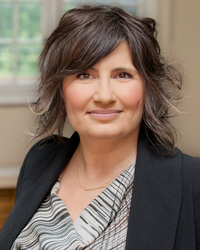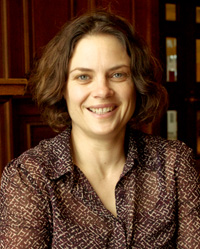Two leaders of programs founded at and supported by the Faculty of Law have been awarded Community Leadership in Justice Fellowships (CLJF) from the Law Foundation of Ontario.
 Nikki Gershbain is the national director of Pro Bono Students Canada (PBSC), whose headquarters are at the Faculty of Law. She has extensive experience developing and overseeing programs that use law students to provide legal services without charge to people in need.
Nikki Gershbain is the national director of Pro Bono Students Canada (PBSC), whose headquarters are at the Faculty of Law. She has extensive experience developing and overseeing programs that use law students to provide legal services without charge to people in need.
Gershbain’s fellowship is with the University of Windsor, Faculty of Law. There she will partner with Dr. Julie Macfarlane, Distinguished University Professor and director of the National Self-Represented Litigants Project (NSRLP). The NSRLP emerged out of a ground-breaking research study conducted by Dr. Macfarlane, and partially funded by the Law Foundation of Ontario, that documented the experiences of self-represented litigants in Canada.
As part of her Fellowship, Gershbain will research and develop teaching tools for a new model of legal service delivery called legal ‘coaching’. She will work with legal institutions to refine and promote the coaching model as part of the profession’s response to the increase in self-represented litigants, which could have far-reaching consequences for how a new generation of lawyers interact with clients and approach the practice of law, including family law.
 Sarah Pole is the executive director of Law in Action Within Schools (LAWS), the youth outreach partnership between the University of Toronto Faculty of Law and Osgoode Hall Law School at York University. She has extensive experience in youth justice education and has focused in particular on youth facing personal and systemic barriers to success.
Sarah Pole is the executive director of Law in Action Within Schools (LAWS), the youth outreach partnership between the University of Toronto Faculty of Law and Osgoode Hall Law School at York University. She has extensive experience in youth justice education and has focused in particular on youth facing personal and systemic barriers to success.
The theme of Pole’s fellowship is urban inequity. Pole will be hosted by the Masters of Teaching Program at University of Toronto, Ontario Institute for Studies in Education (OISE). She will research and build connections among the education, legal, and urban planning sectors to explore how our physical environments impact diverse youth, their education, and their ability to engage as citizens in issues that matter to them. Additionally, Pole’s work will look at the impact the built environment has on young people’s ability to consider and enter legal sector careers.
Pole’s fellowship will include the development of a community asset-mapping project that includes a teaching unit linked to the Ontario curriculum; a tri-sector collaboration among legal, urban planning, and educational professionals to consider issues of access, inclusion, and participation; and a youth symposium.
The CLJF gives senior-level employees in nonprofit organizations the opportunity to spend all or part of an academic year at an Ontario law school, university, or community college department dedicated to legal or justice studies. It gives nonprofit leaders the opportunity for professional development and career renewal and it strengthens the bond between academia and community-based nonprofit organizations, fostering partnerships that last beyond the term of the fellowship. The CLJF also broadens and enriches students’ academic experiences through innovative approaches to teaching and learning.
For more information about the awards, see the Law Foundation of Ontario website.

 Nikki Gershbain is the national director of
Nikki Gershbain is the national director of  Sarah Pole is the executive director of
Sarah Pole is the executive director of